-
 Bitcoin
Bitcoin $84,886.7615
-0.14% -
 Ethereum
Ethereum $1,581.5270
-2.65% -
 Tether USDt
Tether USDt $0.9999
0.01% -
 XRP
XRP $2.0882
-2.39% -
 BNB
BNB $582.3082
-0.40% -
 Solana
Solana $127.5462
-1.96% -
 USDC
USDC $1.0000
0.01% -
 TRON
TRON $0.2533
1.94% -
 Dogecoin
Dogecoin $0.1543
-1.49% -
 Cardano
Cardano $0.6062
-2.88% -
 UNUS SED LEO
UNUS SED LEO $9.4099
0.75% -
 Chainlink
Chainlink $12.2075
-1.60% -
 Avalanche
Avalanche $18.9156
-3.41% -
 Stellar
Stellar $0.2350
-1.64% -
 Toncoin
Toncoin $2.8614
-3.37% -
 Shiba Inu
Shiba Inu $0.0...01173
-1.51% -
 Sui
Sui $2.0690
-4.30% -
 Hedera
Hedera $0.1578
-3.19% -
 Bitcoin Cash
Bitcoin Cash $321.2468
-0.91% -
 Litecoin
Litecoin $74.3968
-1.35% -
 Polkadot
Polkadot $3.5397
-1.95% -
 Dai
Dai $0.9999
0.00% -
 Hyperliquid
Hyperliquid $15.7161
0.35% -
 Bitget Token
Bitget Token $4.3529
1.08% -
 Ethena USDe
Ethena USDe $0.9992
0.00% -
 Pi
Pi $0.6075
-7.67% -
 Monero
Monero $217.5058
0.99% -
 Uniswap
Uniswap $5.1384
-3.22% -
 OKB
OKB $51.5691
-0.09% -
 Pepe
Pepe $0.0...07083
-1.23%
What causes Exodus wallet to lag or respond slowly?
Exodus wallet may lag due to hardware limitations, software conflicts, network issues, slow blockchain sync, or improper wallet settings and configurations.
Apr 14, 2025 at 11:00 pm
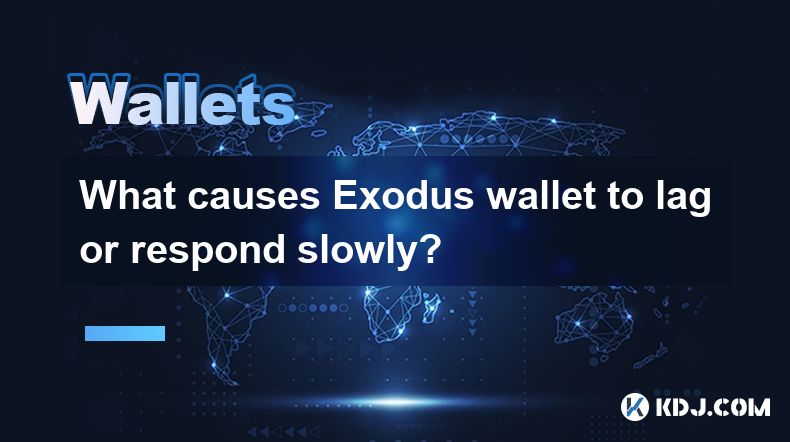
What causes Exodus wallet to lag or respond slowly?
Exodus wallet is a popular choice for many cryptocurrency enthusiasts due to its user-friendly interface and robust feature set. However, users may occasionally experience lag or slow response times. Understanding the root causes of these issues can help in mitigating them and ensuring a smoother user experience. This article delves into the various factors that can lead to Exodus wallet lagging or responding slowly.
Hardware Limitations
One of the primary reasons for Exodus wallet to lag is insufficient hardware resources. Exodus is a desktop application that requires a certain level of processing power, memory, and storage to function optimally. If your computer does not meet these requirements, you may experience slow performance.
- Processor (CPU): Exodus requires a modern processor to handle the cryptographic operations and data processing involved in managing cryptocurrencies. Older or less powerful CPUs may struggle to keep up, leading to lag.
- Memory (RAM): Adequate RAM is crucial for running Exodus smoothly. If your system is low on RAM, it may need to use the hard drive as virtual memory, which is significantly slower and can cause the wallet to lag.
- Storage: Exodus stores blockchain data and transaction history on your local drive. If your storage drive is slow or nearly full, it can impact the wallet's performance.
To check your hardware specifications and ensure they meet Exodus's requirements, you can follow these steps:
- On Windows: Press
Win + R, typedxdiag, and press Enter. This will open the DirectX Diagnostic Tool, where you can view your CPU, RAM, and other hardware details. - On macOS: Click the Apple menu, select
About This Mac, and you will see your processor and memory information. - On Linux: Open a terminal and type
lscpufor CPU details andfree -hfor memory information.
Software Conflicts
Another common cause of lag in Exodus wallet is conflicts with other software running on your system. These conflicts can arise from antivirus programs, firewalls, or other resource-intensive applications that compete for system resources.
- Antivirus Software: Some antivirus programs may flag Exodus as a potential threat and interfere with its operations. This can lead to slow response times as the wallet struggles to perform its tasks.
- Firewalls: Firewalls can block necessary network connections that Exodus needs to sync with the blockchain, causing delays in transaction processing and wallet updates.
- Resource-Intensive Applications: Running multiple applications that consume a lot of CPU and RAM can starve Exodus of the resources it needs, resulting in lag.
To mitigate software conflicts, you can try the following:
- Temporarily disable your antivirus software and see if the performance improves. Be cautious and ensure you re-enable it afterward.
- Configure your firewall to allow Exodus to communicate freely with the internet. You can usually find these settings in your firewall's control panel.
- Close unnecessary applications before opening Exodus to free up system resources.
Network Issues
Network connectivity plays a crucial role in the performance of Exodus wallet. Slow or unstable internet connections can cause the wallet to lag as it struggles to sync with the blockchain and process transactions.
- Internet Speed: A slow internet connection can delay the wallet's ability to fetch and update blockchain data, leading to lag.
- Network Stability: Frequent disconnections or high latency can interrupt the wallet's operations, causing it to respond slowly.
- VPNs and Proxies: Using a VPN or proxy can sometimes slow down your internet connection and affect Exodus's performance.
To improve your network conditions:
- Run a speed test using a service like Speedtest.net to check your internet speed. If it's slow, consider upgrading your plan or switching providers.
- Check your network stability by monitoring your connection over time. If it's unstable, you may need to troubleshoot your router or contact your ISP.
- Disable VPNs or proxies temporarily to see if it improves Exodus's performance.
Blockchain Synchronization
Exodus wallet needs to stay in sync with the blockchain to function correctly. Slow blockchain synchronization can cause the wallet to lag, especially if you are using a cryptocurrency with a large blockchain.
- Blockchain Size: Some cryptocurrencies have very large blockchains, which can take a long time to download and process, leading to lag.
- Network Congestion: High transaction volumes on the blockchain can slow down synchronization as the wallet struggles to keep up with the influx of data.
- Outdated Software: Using an outdated version of Exodus can lead to slower synchronization as it may not be optimized for the latest blockchain protocols.
To address blockchain synchronization issues:
- Ensure you have the latest version of Exodus by checking for updates in the wallet's settings.
- Monitor the blockchain size and consider using a lighter version of the wallet if available, such as a light client that doesn't require downloading the entire blockchain.
- Be patient during periods of high network congestion, as this is often a temporary issue that will resolve itself once the network stabilizes.
Wallet Configuration and Settings
The way you configure and use Exodus wallet can also impact its performance. Improper settings or excessive use of certain features can lead to lag.
- Multiple Accounts: Managing multiple cryptocurrency accounts within Exodus can increase the load on the wallet, leading to slower performance.
- Frequent Transactions: Constantly sending and receiving transactions can keep the wallet busy and cause it to respond slowly.
- High Security Settings: Enabling high-security features like two-factor authentication can add extra steps to wallet operations, potentially causing lag.
To optimize your wallet configuration:
- Limit the number of accounts you manage within Exodus to reduce the load on the wallet.
- Avoid frequent transactions if possible, and consider batching transactions when necessary.
- Adjust security settings to find a balance between security and performance. For example, you might disable two-factor authentication for less critical accounts.
Frequently Asked Questions
Q: Can using Exodus on a mobile device cause it to lag more than on a desktop?
A: Yes, mobile devices generally have less processing power and memory compared to desktops, which can lead to more pronounced lag when using Exodus. However, the extent of the lag also depends on the specific hardware of the mobile device and the version of the Exodus app.
Q: Does the type of cryptocurrency affect the performance of Exodus wallet?
A: Yes, different cryptocurrencies have different blockchain sizes and transaction volumes, which can impact the performance of Exodus. Cryptocurrencies with larger blockchains or higher transaction rates may cause more lag.
Q: Can clearing the cache in Exodus improve its performance?
A: Yes, clearing the cache can help improve performance by removing outdated or unnecessary data that may be slowing down the wallet. You can clear the cache by going to the settings in Exodus and selecting the appropriate option.
Q: Is there a way to monitor Exodus's performance to identify lag issues?
A: Yes, you can use system monitoring tools like Task Manager on Windows or Activity Monitor on macOS to keep an eye on CPU, RAM, and disk usage while using Exodus. This can help you identify if hardware limitations are causing the lag.
Disclaimer:info@kdj.com
The information provided is not trading advice. kdj.com does not assume any responsibility for any investments made based on the information provided in this article. Cryptocurrencies are highly volatile and it is highly recommended that you invest with caution after thorough research!
If you believe that the content used on this website infringes your copyright, please contact us immediately (info@kdj.com) and we will delete it promptly.
- Just Days After Collapsing More Than 90%, Mantra (OM) Shows Signs of Life – Rebounding 30%
- 2025-04-17 00:35:15
- ZetaChain Expands Its Mainnet to Include Arbitrum, Opening Up Its Features to Over 50 Million New Users
- 2025-04-17 00:35:15
- DWF Labs Expands Operations Into the US Market by Investing $25M in World Liberty Financial (WLFI)
- 2025-04-17 00:30:13
- Bitcoin (BTC) Unrealized Losses Stay Low, Buyer Activity Increased
- 2025-04-17 00:30:13
- The dark side of market-making: How loan option models are being used to rug pull cryptocurrency projects
- 2025-04-17 00:25:15
- FFG Token is scheduled to go live in the coming weeks
- 2025-04-17 00:25:15
Related knowledge
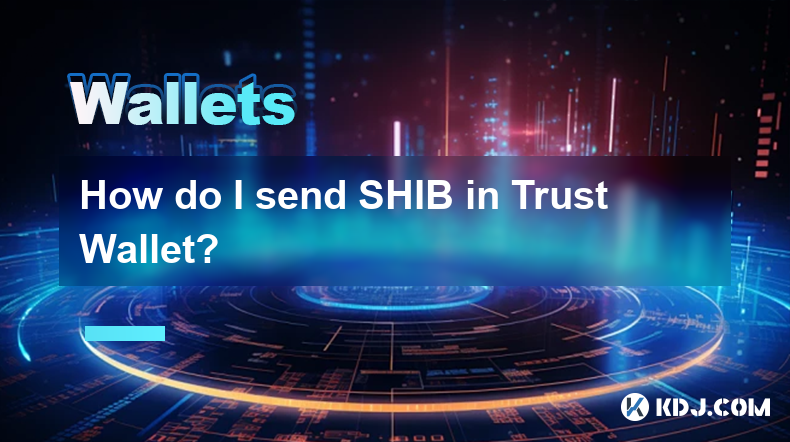
How do I send SHIB in Trust Wallet?
Apr 16,2025 at 09:07pm
Sending SHIB (Shiba Inu) in Trust Wallet is a straightforward process, but it requires careful attention to detail to ensure your transaction is successful. In this guide, we will walk you through each step of sending SHIB from your Trust Wallet, ensuring you understand every aspect of the process. Preparing Your Trust WalletBefore you start sending SHI...

How do I send BTC in Trust Wallet?
Apr 16,2025 at 11:57pm
Sending Bitcoin (BTC) in Trust Wallet is a straightforward process that can be completed in a few simple steps. Trust Wallet is a popular mobile wallet that supports a wide range of cryptocurrencies, including Bitcoin. This article will guide you through the process of sending BTC from your Trust Wallet, ensuring that you can do so securely and efficien...
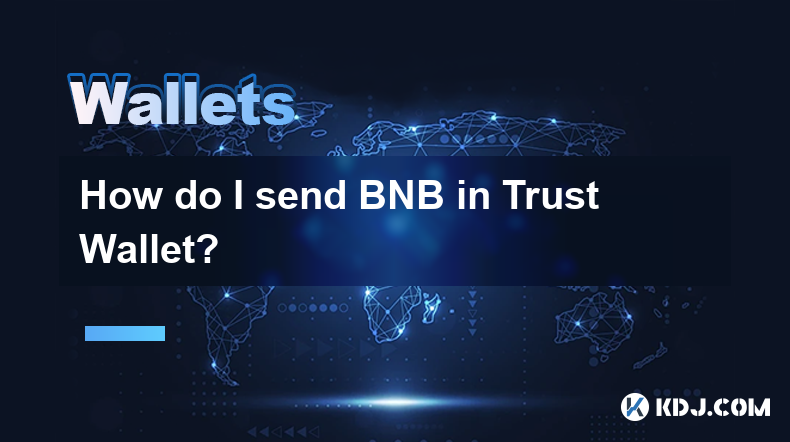
How do I send BNB in Trust Wallet?
Apr 16,2025 at 09:42pm
Sending BNB (Binance Coin) using the Trust Wallet app is a straightforward process, but it's important to follow each step carefully to ensure the transaction is successful and secure. In this article, we will guide you through the process of sending BNB from your Trust Wallet, detailing each step and addressing potential issues you might encounter alon...
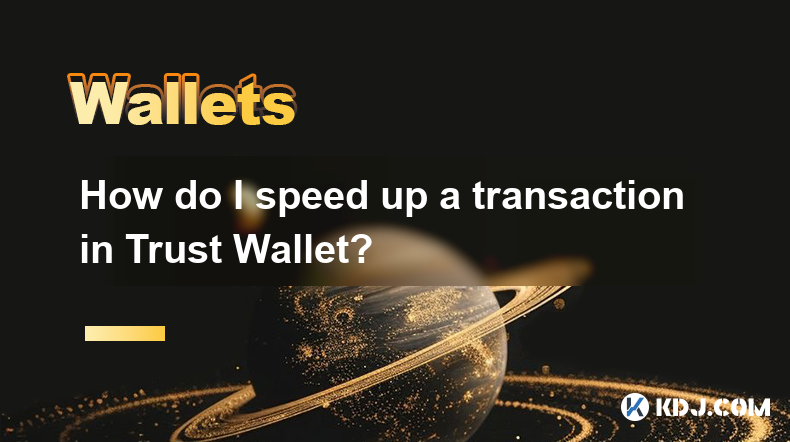
How do I speed up a transaction in Trust Wallet?
Apr 16,2025 at 09:14pm
How to Speed Up a Transaction in Trust WalletTrust Wallet is a popular mobile wallet for managing various cryptocurrencies. Occasionally, users may find themselves in a situation where a transaction is taking longer than expected. In such cases, speeding up the transaction can be crucial. This article will guide you through the process of accelerating y...
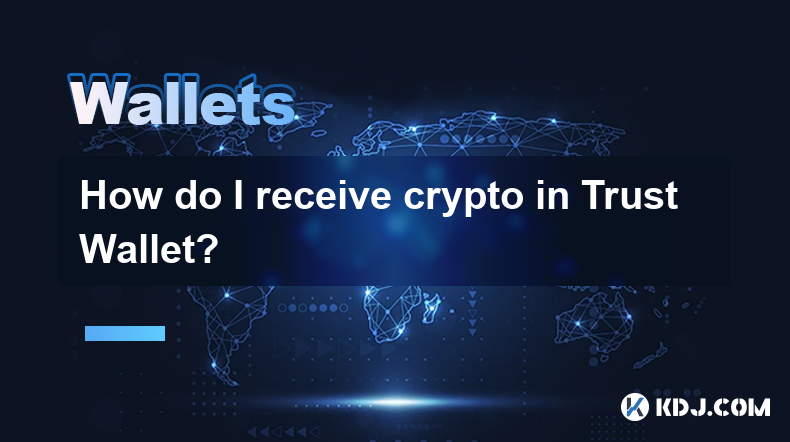
How do I receive crypto in Trust Wallet?
Apr 16,2025 at 11:28pm
Receiving cryptocurrency in Trust Wallet is a straightforward process, but it's essential to follow each step carefully to ensure the safety and accuracy of your transactions. Trust Wallet is a popular mobile wallet that supports a wide range of cryptocurrencies, making it a convenient choice for managing your digital assets. In this article, we will gu...
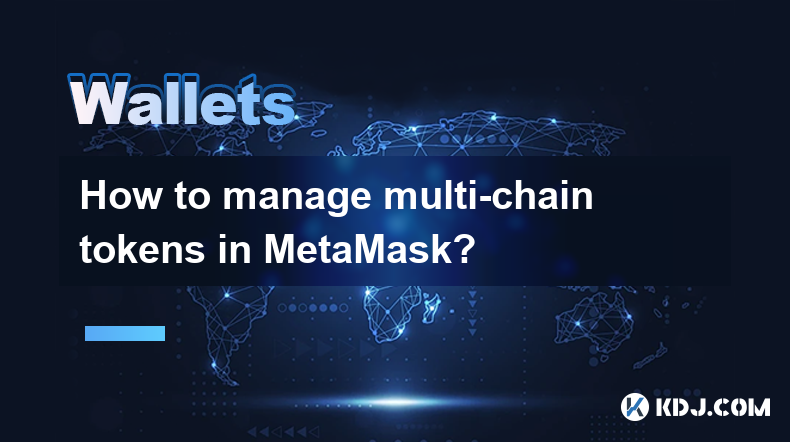
How to manage multi-chain tokens in MetaMask?
Apr 16,2025 at 09:28pm
Managing multi-chain tokens in MetaMask can be a seamless process if you understand the steps and features involved. MetaMask, a popular cryptocurrency wallet, supports a variety of blockchain networks, allowing you to manage tokens across different chains efficiently. This article will guide you through the process of adding and managing multi-chain to...

How do I send SHIB in Trust Wallet?
Apr 16,2025 at 09:07pm
Sending SHIB (Shiba Inu) in Trust Wallet is a straightforward process, but it requires careful attention to detail to ensure your transaction is successful. In this guide, we will walk you through each step of sending SHIB from your Trust Wallet, ensuring you understand every aspect of the process. Preparing Your Trust WalletBefore you start sending SHI...

How do I send BTC in Trust Wallet?
Apr 16,2025 at 11:57pm
Sending Bitcoin (BTC) in Trust Wallet is a straightforward process that can be completed in a few simple steps. Trust Wallet is a popular mobile wallet that supports a wide range of cryptocurrencies, including Bitcoin. This article will guide you through the process of sending BTC from your Trust Wallet, ensuring that you can do so securely and efficien...

How do I send BNB in Trust Wallet?
Apr 16,2025 at 09:42pm
Sending BNB (Binance Coin) using the Trust Wallet app is a straightforward process, but it's important to follow each step carefully to ensure the transaction is successful and secure. In this article, we will guide you through the process of sending BNB from your Trust Wallet, detailing each step and addressing potential issues you might encounter alon...

How do I speed up a transaction in Trust Wallet?
Apr 16,2025 at 09:14pm
How to Speed Up a Transaction in Trust WalletTrust Wallet is a popular mobile wallet for managing various cryptocurrencies. Occasionally, users may find themselves in a situation where a transaction is taking longer than expected. In such cases, speeding up the transaction can be crucial. This article will guide you through the process of accelerating y...

How do I receive crypto in Trust Wallet?
Apr 16,2025 at 11:28pm
Receiving cryptocurrency in Trust Wallet is a straightforward process, but it's essential to follow each step carefully to ensure the safety and accuracy of your transactions. Trust Wallet is a popular mobile wallet that supports a wide range of cryptocurrencies, making it a convenient choice for managing your digital assets. In this article, we will gu...

How to manage multi-chain tokens in MetaMask?
Apr 16,2025 at 09:28pm
Managing multi-chain tokens in MetaMask can be a seamless process if you understand the steps and features involved. MetaMask, a popular cryptocurrency wallet, supports a variety of blockchain networks, allowing you to manage tokens across different chains efficiently. This article will guide you through the process of adding and managing multi-chain to...
See all articles























































































